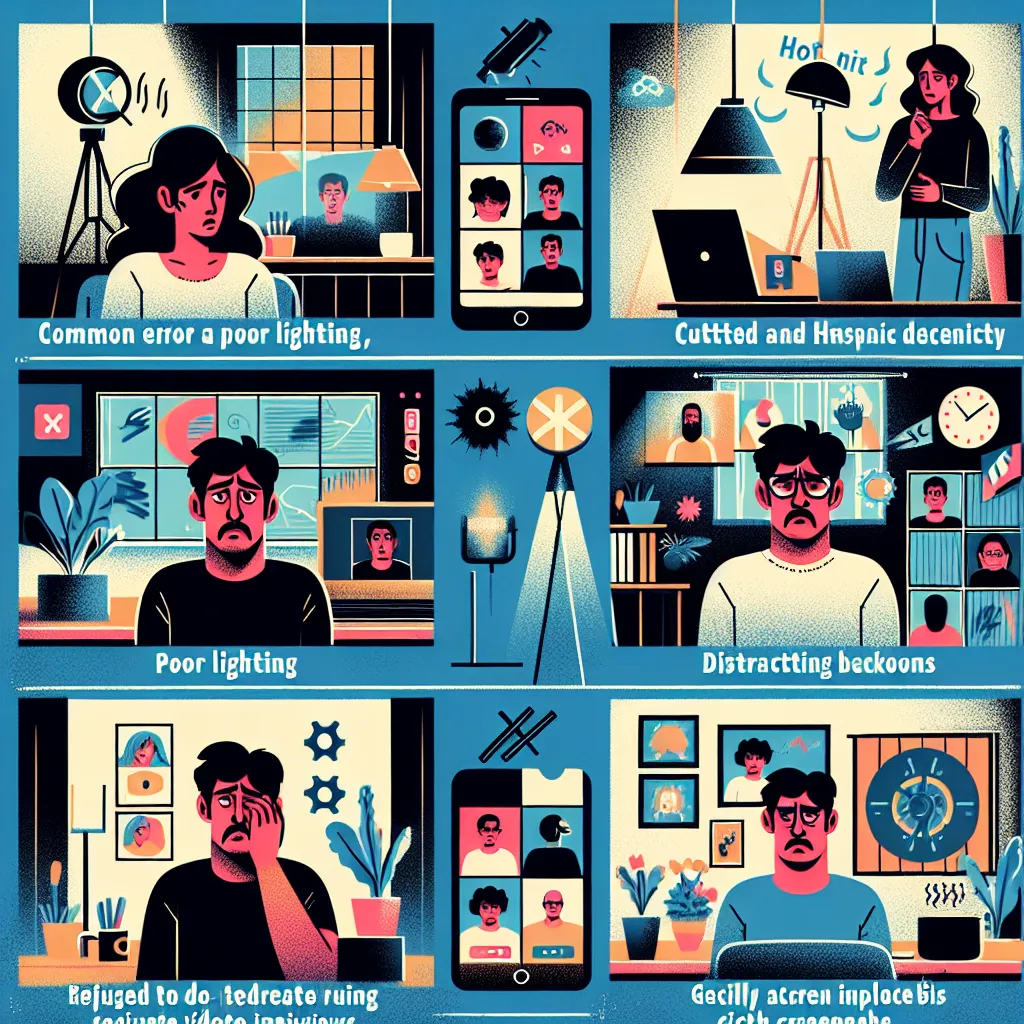Remote interviews have become increasingly common in today’s job market. Whether you’re applying for a position at a global company or a local business embracing remote work, knowing how to ace a virtual interview is crucial. This comprehensive guide will walk you through the essential steps to prepare for a remote interview, ensuring you make a strong impression and increase your chances of landing the job.
Understanding the Importance of Remote Interview Preparation
Remote interviews present unique challenges and opportunities. While they offer convenience and flexibility, they also require specific skills and preparation to navigate successfully. Understanding the nuances of virtual communication and the expectations of remote employers is key to standing out in this competitive landscape.
 Remote Interview Preparation
Remote Interview Preparation
The Employer’s Perspective on Remote Interviews
When conducting remote interviews, employers are looking for candidates who can demonstrate:
- Technical proficiency: Ability to use video conferencing tools and troubleshoot basic issues
- Communication skills: Clear and concise verbal communication, as well as active listening
- Adaptability: Comfort with remote work environments and digital collaboration tools
- Self-motivation: Capacity to work independently and manage time effectively
- Professional presentation: Appropriate attire and a suitable background for video calls
Understanding these expectations will help you tailor your preparation and presentation to meet the employer’s criteria.
Essential Steps to Prepare for a Remote Interview
1. Test Your Technology
One of the most critical aspects of a remote interview is ensuring your technology is reliable and functioning properly. Follow these steps:
- Check your internet connection: Run a speed test to ensure your connection is stable and fast enough for video calls.
- Test your camera and microphone: Make sure they’re working correctly and provide clear audio and video.
- Familiarize yourself with the video conferencing platform: Practice using the software the interviewer plans to use (e.g., Zoom, Skype, or Google Meet).
- Have a backup plan: Keep your phone charged and ready in case of technical difficulties with your computer.
2. Set Up Your Environment
Creating a professional and distraction-free environment is crucial for a successful remote interview. Consider these tips:
- Choose a quiet location with good lighting: Natural light is best, but ensure you’re not backlit.
- Set up a neutral background: A plain wall or tidy bookshelf works well.
- Minimize potential interruptions: Inform household members about your interview and put pets in another room.
- Position your camera at eye level: This creates a more natural conversational feel.
3. Dress Appropriately
Even though you’re at home, dressing professionally is still important. It not only looks good on camera but also helps put you in the right mindset for the interview. Here are some guidelines:
- Choose solid colors: They tend to look better on camera than patterns.
- Avoid bright white or black: These can cause exposure issues on video.
- Dress professionally from head to toe: You never know when you might need to stand up during the call.
4. Practice Your Responses
Preparation is key to confidence. Here are some common remote interview questions and how to approach them:
-
“How do you stay organized when working remotely?”
- Discuss your time management techniques, use of digital tools, and how you prioritize tasks.
-
“How do you communicate effectively in a remote team?”
- Highlight your experience with various communication tools and your ability to be clear and proactive in virtual settings.
-
“How do you maintain work-life balance when working from home?”
- Explain your strategies for setting boundaries, creating a dedicated workspace, and managing your schedule.
-
“Can you describe a time when you successfully collaborated on a project remotely?”
- Use the STAR method (Situation, Task, Action, Result) to provide a concrete example of your remote collaboration skills.
-
“How do you stay motivated and focused when working independently?”
- Discuss your self-motivation techniques, goal-setting practices, and how you maintain productivity without direct supervision.
5. Prepare Questions for the Interviewer
Having thoughtful questions ready demonstrates your interest and engagement. Consider asking:
- “How does the company facilitate team bonding in a remote environment?”
- “What tools does the company use for project management and communication?”
- “Can you describe the typical day-to-day responsibilities for this role in a remote setting?”
- “How does the company measure productivity and success for remote employees?”
- “What opportunities are there for professional development and growth within the company?”
6. Be Prepared for Follow-Up Questions
Interviewers often ask follow-up questions to delve deeper into your responses. Here are some examples with suggested approaches:
-
“You mentioned using project management tools. Can you elaborate on how you’ve used them to improve team efficiency?”
- Provide specific examples of how you’ve utilized tools like Trello or Asana to streamline workflows or improve collaboration.
-
“How do you handle miscommunications that can occur in written messages?”
- Explain your approach to clarifying misunderstandings, such as scheduling quick video calls or using clearer language in follow-up messages.
-
“Can you give an example of how you’ve onboarded or trained a team member remotely?”
- Describe a specific instance, detailing the methods you used and the outcome of your efforts.
-
“How do you ensure you’re visible and adding value to the team when working remotely?”
- Discuss your strategies for regular check-ins, sharing progress updates, and contributing to team meetings.
-
“What’s your approach to maintaining work relationships in a virtual environment?”
- Highlight your methods for virtual networking, scheduling informal catch-ups, or participating in online team-building activities.
Common Mistakes to Avoid in Remote Interviews
Being aware of potential pitfalls can help you avoid them. Here are some common mistakes and how to prevent them:
- Poor eye contact: Look directly into the camera, not at the screen, to simulate eye contact.
- Distracting background noise: Use headphones with a microphone to minimize ambient sounds.
- Inappropriate lighting: Ensure your face is well-lit and avoid harsh backlighting.
- Fidgeting or looking distracted: Practice maintaining a calm and engaged posture throughout the interview.
- Forgetting to mute: Always mute your microphone when not speaking to avoid unexpected background noises.
 Common Remote Interview Mistakes
Common Remote Interview Mistakes
Conclusion: Mastering the Art of Remote Interviews
Preparing for a remote interview requires attention to detail, practice, and the right mindset. By following these tips and strategies, you’ll be well-equipped to make a strong impression and showcase your skills effectively in a virtual setting. Remember to stay calm, be yourself, and let your qualifications and personality shine through the screen.
For more information on excelling in your job search, check out our related articles on how to prepare for an online interview and how to answer questions about remote work. Good luck with your remote interview!




